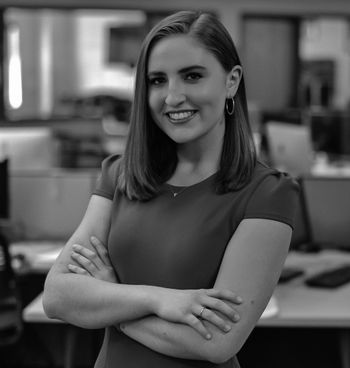UF 'policing' event devolves into 'defund the police' promo
The University of Florida hosted an online event with multiple panelists to discuss policing in modern society.
One panelist described the police as being a “violent institution” full of “violence workers.”
Another panelist said that police “abuse and overuse the criminal justice system.”
The University of Florida hosted an event to facilitate discussion on the topic of policing. The online event, “Let’s Talk about: Policing,” was hosted by Student Activities & Involvement and the Brown Center for Leadership & Service.
The event on November 9 featured a panel of experts from a variety of backgrounds, including experts from the University of Florida Levin College of Law, Yale University, and the City of Gainesville.
Panelist Philip McHarris, a Ph.D. candidate in Sociology and African American Studies at Yale University, spoke about the historical implications of law enforcement.
“Policing wasn’t created for public safety. And so in many ways, the kind of violence we see today is not an aberration, or it’s not something that is outside of the scope of policing, it’s actually central to police work,” he said.
McHarris also claimed that “police has historically and continues to be [sic} a violent institution” and that “crime is a social construct.” McHarrris said that society should begin by looking at other alternatives for policing, such as nonprofit organizations within marginalized communities.
[RELATED: EXCLUSIVE: University promotes ‘Defund the Police?’ class]
”We’ve been told, for most people, their entire lives, that this model that we have in the criminal legal system, you know, in terms of police responding, incarceration, arrest, that this is how we deal with concerns around safety and how we manage public safety,” he said. “But there are alternatives for every single situation.”
The Ivy League panelist also stated that “police are violence workers.”
“Other folks have theorized, and when I say that, I mean that when someone has a gun and handcuffs and the license from the state to engage in violence, that is always in the backdrop, even if there’s not an incident of violence. For example, like if I’m pulled over, if an incident of violence doesn’t happen, that doesn’t change the fact that I get triggered, because of my past experiences. And because there is that, there is a threat of violence because police have a monopoly on violence in this context,” McHarrris said.
Another panelist spoke during the event about the movement to defund the police.
[RELATED: WATCH: Stanford group occupies police station grounds to advocate defunding police]
Michelle Jacobs, professor of law at the University of Florida, said the process for abolishing the police is a slow one: “The whole notion about reimagining the criminal justice system doesn’t start with abolishing the police. That may be the ultimate goal down the line if things go well, but it’s a process where we start thinking about how we interrupt violence that doesn’t involve the police,” she said.
Jacobs told the audience what happens when the police arrive at a scene.
“When the police come, they abuse and overuse the criminal justice system in order to solve all kinds of problems like homelessness and mental health,” Jacobs said.
“It [defunding the police] is not an event. It’s a process,” she said. “ It’s a multi-year long term process that requires all of the people, all of the stakeholders, including the police, to think about how we can re-envision our communities that don’t require criminalization of everyone who makes a mistake.”
The event featured two more panelists: Kenneth Nunn, professor of law at the University of Florida, and William Halvosa, Retired Captain for the Gainesville Police Department.
Follow the author of this article on Twitter: @opheliejacobson

